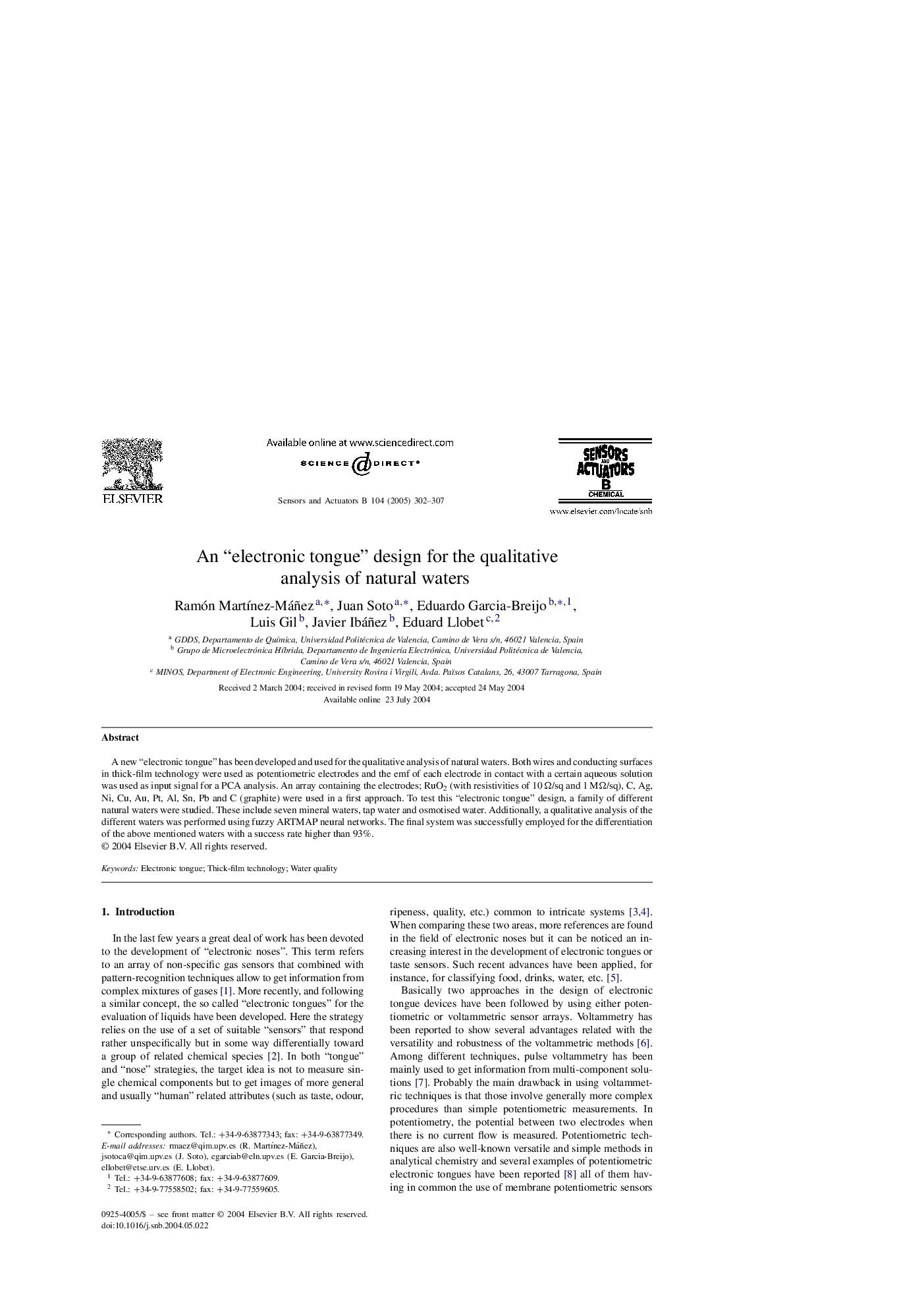| Article ID | Journal | Published Year | Pages | File Type |
|---|---|---|---|---|
| 10411104 | Sensors and Actuators B: Chemical | 2005 | 6 Pages |
Abstract
A new “electronic tongue” has been developed and used for the qualitative analysis of natural waters. Both wires and conducting surfaces in thick-film technology were used as potentiometric electrodes and the emf of each electrode in contact with a certain aqueous solution was used as input signal for a PCA analysis. An array containing the electrodes; RuO2 (with resistivities of 10 Ω/sq and 1 MΩ/sq), C, Ag, Ni, Cu, Au, Pt, Al, Sn, Pb and C (graphite) were used in a first approach. To test this “electronic tongue” design, a family of different natural waters were studied. These include seven mineral waters, tap water and osmotised water. Additionally, a qualitative analysis of the different waters was performed using fuzzy ARTMAP neural networks. The final system was successfully employed for the differentiation of the above mentioned waters with a success rate higher than 93%.
Related Topics
Physical Sciences and Engineering
Chemistry
Analytical Chemistry
Authors
Ramón MartıÌnez-Máñez, Juan Soto, Eduardo Garcia-Breijo, Luis Gil, Javier Ibáñez, Eduard Llobet,
